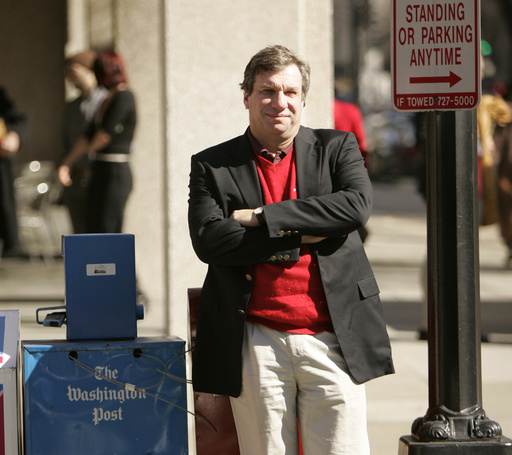John Feinstein, a pioneering force in sports journalism, passed away on Thursday at the age of 69 due to natural causes. The esteemed writer, known for his intricate storytelling in sports literature, died at his brother’s home in McLean, Virginia. Feinstein’s legacy is firmly cemented in the world of sports writing, where he influenced countless readers and inspired those within the sports community.
Feinstein’s career spanned multiple decades, beginning as a full-time reporter with The Washington Post from 1977 through 1991. Over the years, he contributed his voice and opinions to various platforms, including ESPN’s “The Sports Reporters” and the Golf Channel. He was also a familiar presence as a voter in the AP Top 25 men’s college basketball poll for over two decades.
Renowned for his passionate views and strong opinions, John Feinstein could captivate an audience, whether through his written work or lively discussions. Just this week, Feinstein made the trip to the Washington area to cover the Atlantic 10 Tournament, and he managed to file a column on Michigan State’s coach Tom Izzo, showcasing his relentless dedication to the craft.
His body of work is vast but Feinstein gained prominence with his critically acclaimed book, “A Season on the Brink,” which offered an unfiltered look at Indiana basketball coach Bob Knight during the 1985 season. He skillfully portrayed the enigmatic Knight, capturing both his fiery demeanor and complex relationships with players.
In his tribute to Knight, Feinstein acknowledged the profound impact the coach had on his life—even as Knight harbored resentment after the book’s publication. Nevertheless, both maintained a cordial albeit distant relationship over the years.
Many within the sports community expressed sorrow at the loss of Feinstein, with figures from all corners of college basketball taking to social media to discuss his impact and kindness. Marquette coach Shaka Smart remembered Feinstein as not just a peer but as someone genuinely invested in the sport, its players, and coaches.
The veteran journalist authored more than 40 books, exploring various sports genres from professional golf in “A Good Walk Spoiled” to the compelling narrative of the Army-Navy football rivalry in “A Civil War.” Additionally, he engaged young readers through his sports novels and served as a radio commentator for Navy football.
Feinstein, a Duke University alumnus, eventually returned to his alma mater to share his wisdom with future journalists. More recently, he embarked on a teaching stint at Longwood University in Virginia, enriching students with his experiences while nurturing upcoming talents.
Colleagues from The Washington Post, like Barry Svrluga, praised Feinstein not just for his reporting prowess but his remarkable ability to forge genuine relationships in an industry that thrives on connections. Fond memories like those shared by Dan Steinberg highlighted Feinstein’s love for sports and the infectious enthusiasm he had, no matter the discipline.
Feinstein is survived by his wife Christine, daughters Brigid and Jane, son Danny, sister Margaret, and his brother Robert, who confirmed the news of his passing. John Feinstein’s voice may be silent now, but his stories and contributions to sports will reverberate for generations to come.


